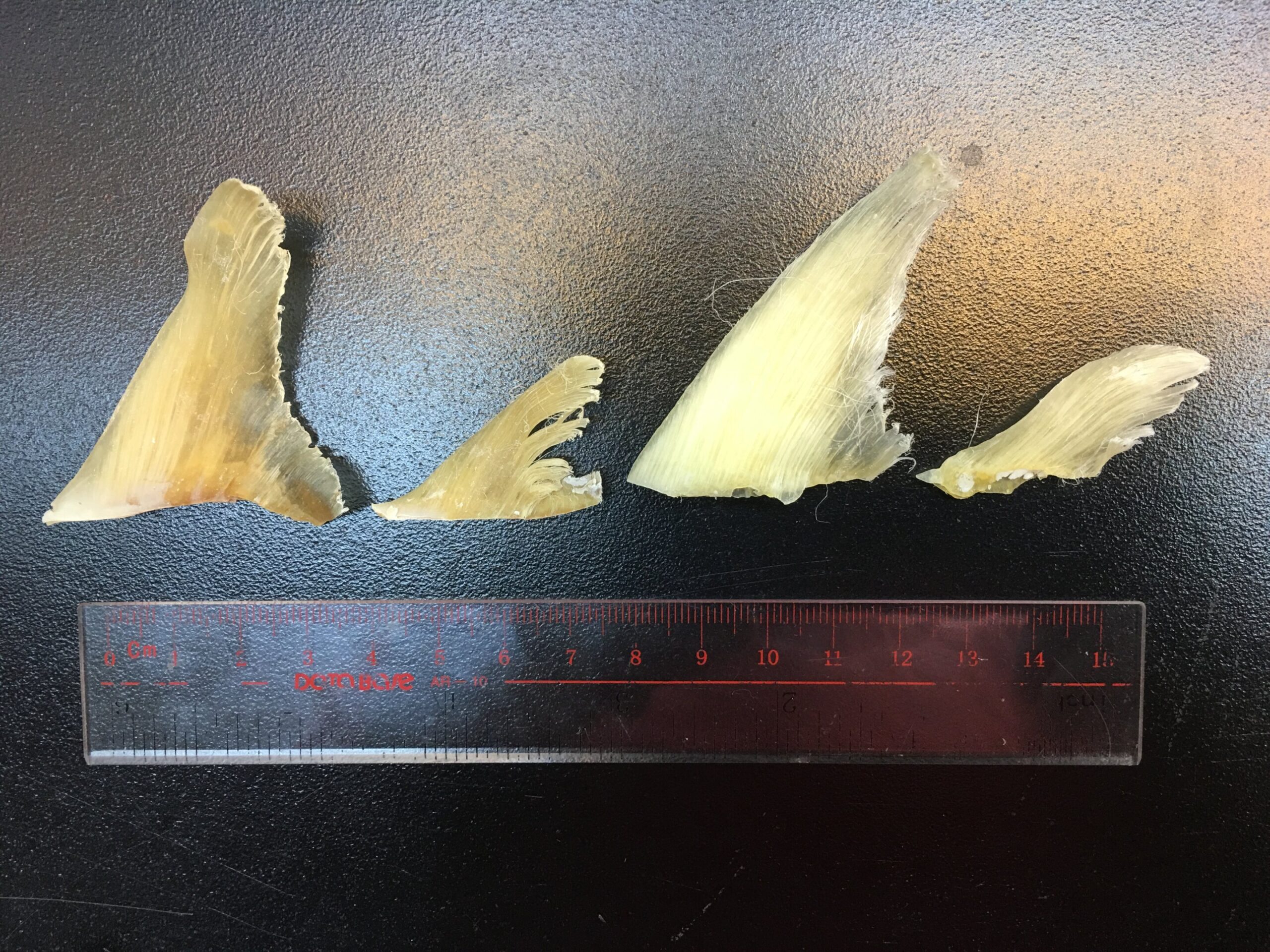FIU scientists have found two main issues after analyzing small shark fins from Hong Kong markets—small coastal species are rather more frequent within the worldwide fin commerce than beforehand thought and there’s a burgeoning marketplace for juveniles of huge species.
Between 2014 and 2021, researchers analyzed the DNA of roughly 4,000 small shark fins collected from the markets. They checked out entire shark fins in addition to trimmings taken from massive and small fins, leading to essentially the most complete evaluation of species range of one of many world’s largest shark fin markets.
Their evaluation revealed small coastal shark species are extra frequent and threatened by worldwide fin commerce than beforehand documented, in response to new analysis just lately printed in Science Advances.
This mixed method highlighted essential administration gaps for 19 small threatened species that aren’t presently regulated by the Conference on Worldwide Commerce in Endangered Species of Wild Fauna and Flora (CITES).
This consists of the Triakidae household, which comprise a few of the most threatened and commonest species within the small fin class, in response to Diego Cardeñosa, FIU biologist and lead writer of the examine. He says worldwide commerce laws have to be utilized sooner quite than later to guard this household resulting from their elevated extinction threat and unsustainable commerce ranges.
The DNA evaluation revealed one thing else—the small shark species should not the one ones exhibiting up within the fin commerce as small fins. 1 / 4 of the small fins had been truly from juveniles of huge shark species, together with critically endangered hammerheads in addition to threatened silky sharks and blacktips. This discovering signifies substantial exploitation of juveniles might be affecting fisheries’ sustainability.
For greater than a decade, fin commerce analysis has primarily targeted on massive fins, however by surveying small ones, Cardeñosa mentioned the precise species composition within the markets is kind of totally different than what the earlier assessments symbolize.
“Customs personnel around the globe ought to totally examine small fin consignments as they possible maintain species which can be already regulated by worldwide insurance policies and must be accompanied by the appropriate certificates,” Cardeñosa mentioned. “In any other case, they’re being illegally traded.”
He’s calling for enhanced surveillance and additional analysis to make sure efficient conservation methods beneath rising commerce laws. The examine is a collaboration between Florida Worldwide College, College of Miami, Mote Marine Laboratory and others.
Extra data:
Diego Cardeñosa et al, Small sharks, huge issues: DNA evaluation of small fins reveals commerce regulation gaps and burgeoning commerce in juvenile sharks, Science Advances (2024). DOI: 10.1126/sciadv.adq6214
Supplied by
Florida Worldwide College
Quotation:
DNA evaluation reveals hidden threats to international shark populations (2024, November 13)
retrieved 13 November 2024
from 4Rn
This doc is topic to copyright. Other than any honest dealing for the aim of personal examine or analysis, no
half could also be reproduced with out the written permission. The content material is offered for data functions solely.
